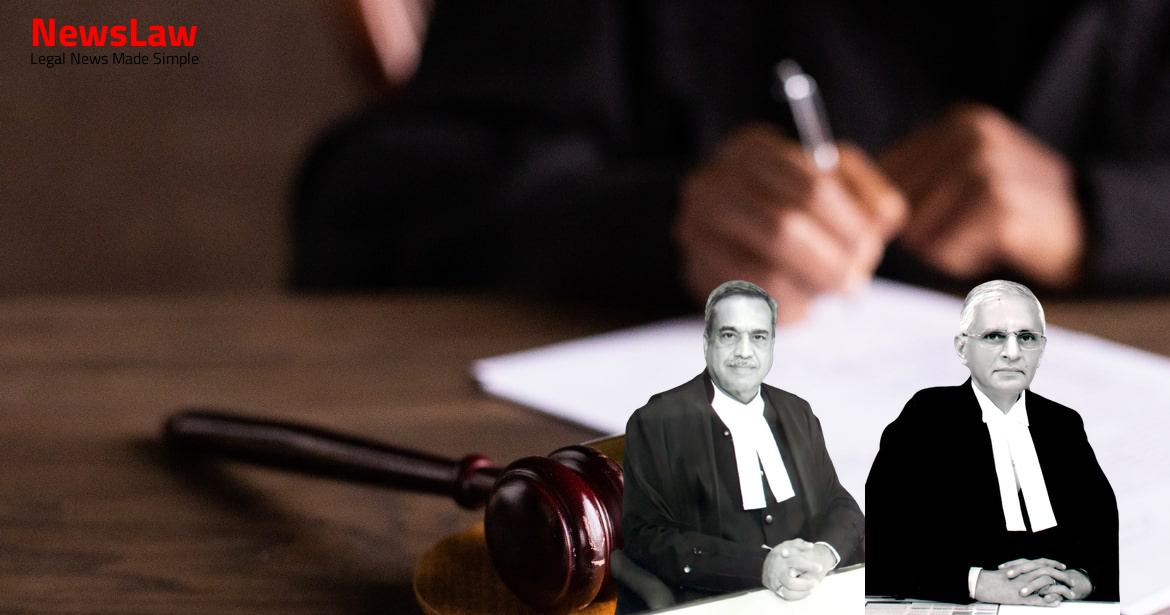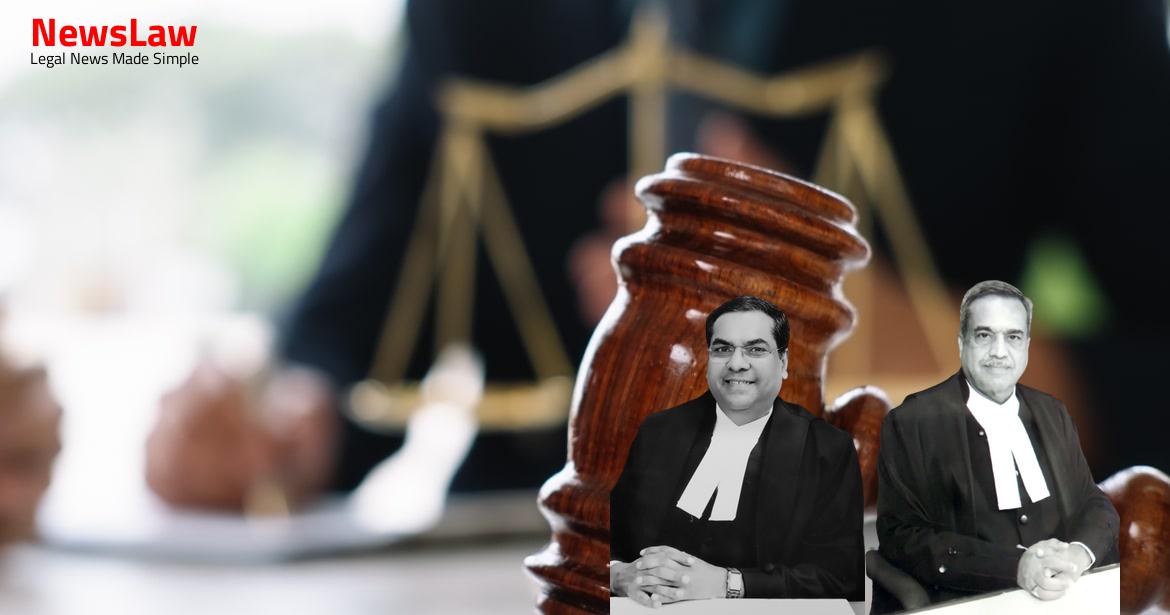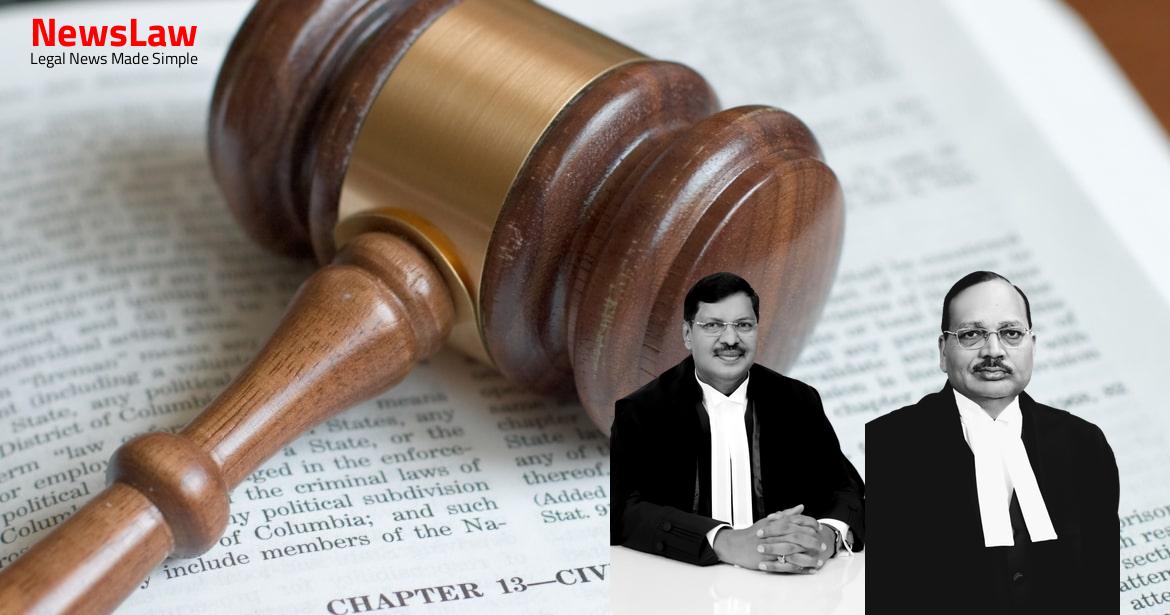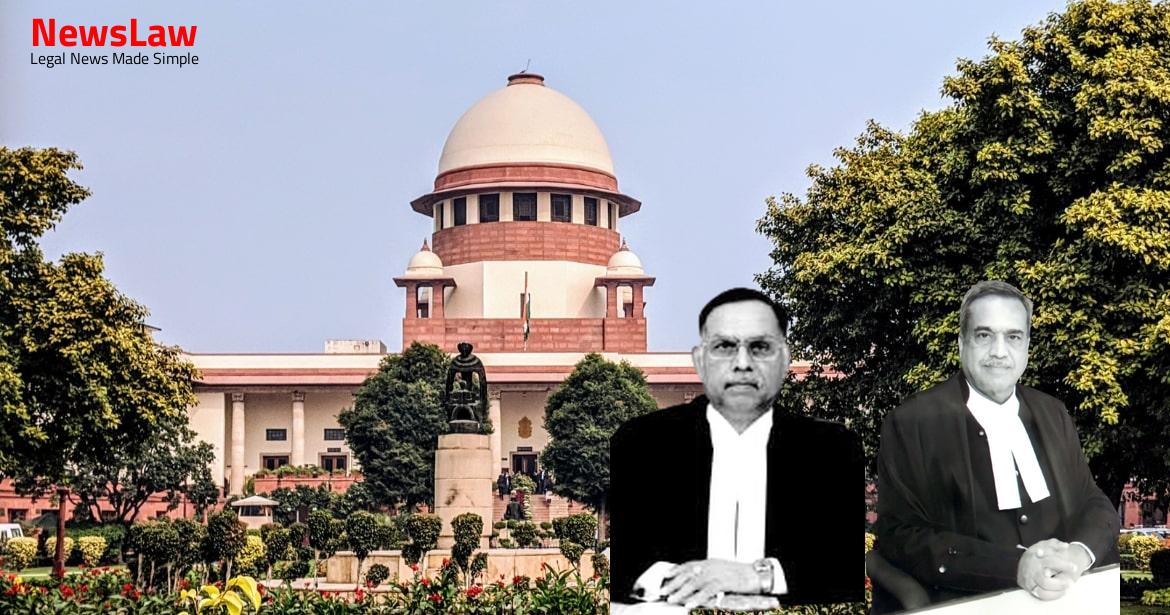In a recent legal case, the court undertook a detailed analysis of the continuity of arbitration proceedings post-retirement of the appointed officer as the Arbitrator. The focus was on determining whether such continuation could be deemed as misconduct by the Arbitrator. Join us as we explore the court’s legal analysis on this critical aspect of arbitration law.
Facts
- The original claimant, M/s. Laxmi, was dissatisfied with the judgment and order dated 19.06.2007 passed by the High Court of Uttaranchal at Nainital, which set aside the award dated 08.01.1998 made by the Arbitrator and the order dated 20.04.2001 making the said award Rule of the Court.
- The Civil Judge (Senior Division), Roorkee overruled objections raised by the respondents and made the award dated 08.01.1998, as arbitration clause 52 did not provide for terminating the Arbitrator’s mandate on his retirement.
- The respondents, feeling aggrieved, appealed the decision, and the High Court set aside the award dated 08.01.1998 solely on the ground that the retired Sole Arbitrator, Shri S.S. Manocha, misconducted himself by proceeding with the arbitration proceedings.
- The original claimant, M/s. Laxmi, has now preferred the present appeal against the High Court’s judgment and order.
- The extended period of arbitration granted by the Civil Judge (Senior Division) was 30 days, after which the Sole Arbitrator declared the award on 08.01.1998, ordering the respondents to pay Rs.10,97,024.00 with interest from 01.10.1990 to 07.01.1998.
- The appellant entered into a contract with the respondents for earthwork and lining of V.U.G.C. from KM 10 to KM 11 in 1988.
- Disputes arose during the contract work, leading to the claimant filing a claim and the respondents filing objections.
- The respondents participated in the arbitration proceedings, with adjournments requested by them on various dates.
- The arbitrator, Shri S.S. Manocha, superannuated on 30.11.1995, and the respondents extended the time for publishing the award during the hearings.
- The Superintending Engineer refused to extend the arbitration period in 1996 due to delays caused by the respondents’ lapses and adjournment requests.
- The appellant filed Arbitration Suit No.116 of 1996 seeking an extension of time for making the award and continuing the arbitration proceedings.
- The respondents objected to the continuation of arbitration by a retired arbitrator and filed Misc. Suit No. 122 of 1997.
Also Read: Judicial Review of Delayed Writ Petition
Issue
- The main issue before the Court is whether an officer appointed as an Arbitrator can continue the proceedings post-retirement.
- Another question raised is whether such continuation can be considered misconduct by the Arbitrator.
- The Court is tasked with determining the implications of a retiring officer continuing as the Sole Arbitrator in an arbitration case.
Also Read: Ownership Dispute: Legal Analysis on Admission and Decree
Arguments
- The appellant’s advocate argues that the High Court erred in quashing the award declared by the Sole Arbitrator and the order of the Civil Judge.
- Clause 52 of the agreement does not mention a mandate for the arbitrator to continue proceedings post-retirement.
- Respondents participated in arbitration even after the arbitrator’s retirement.
- The Chief Engineer nominates the arbitrator based on specified criteria in clause 52.
- The order extending arbitration proceedings after the arbitrator’s retirement was unchallenged and final.
- Appellant contends that objections on arbitrator’s retirement had been overruled by the Civil Judge in a previous order.
- Both parties are bound by the arbitration clause in the agreement unless specified otherwise in clause 52.
- Respondents raised objection against the retired Sole Arbitrator continuing with arbitration proceedings.
- High Court observed the arbitrator’s misconduct for continuing after retirement.
- State Amendment of Section 4 of the Arbitration Act, 1940 was heavily relied upon by the Senior Advocate.
- Submission made that a new Arbitrator should have been nominated as per clause 52 of the agreement upon the retirement of the Chief Engineer who was the arbitrator.
- Opposition to the appeal by the Senior Advocate representing the respondents.
Also Read: Interpretation of Statutory Limitation under Section 263(2)
Analysis
- Contractor must select one officer from a list provided by Chief Engineer as the Sole Arbitrator within 15 days.
- The observations of the High Court that the Sole Arbitrator misconducted himself are not valid.
- The arbitration agreement includes clause 52 which outlines the arbitration process.
- The Civil Judge extended the time for arbitration proceedings even after the retirement of the Sole Arbitrator.
- The Sole Arbitrator’s capability to act after retirement was upheld.
- In cases where an appointed arbitrator neglects, refuses to act, becomes incapable of acting, or dies, the vacancy must be filled as per the agreement.
- If a contractor fails to communicate their selection of an arbitrator within the set time frame, the Chief Engineer will choose an officer from a list to be appointed as the Sole Arbitrator.
- Arbitration proceedings to be conducted as per the Indian Arbitration Act, 1940, with arbitrator being an officer of Superintending Engineer rank or higher.
- Once appointed, the arbitrator continues until the proceedings conclude, even after retirement, as per the agreement.
- Ruling in Himalayan Construction Co. case supports the continuation of arbitration proceedings even after the arbitrator’s retirement.
- Objections raised against the retired arbitrator’s continuation were overruled by the Civil Judge, and extension of time was granted.
- State amendment to Section 4 of the Indian Arbitration Act, 1940 for U.P. has no relevance to the case.
- The learned Sole Arbitrator continued with the arbitration proceedings
- The award was passed within the extended period of time
- Cannot be considered as misconduct on the part of the Sole Arbitrator
Decision
- The High Court’s judgment and order quashing the award and the order of the Civil Judge making the award Rule of the Court are set aside.
- If the contractor fails to communicate the selection of a name within the stipulated period, the Chief Engineer will appoint an arbitrator.
- All awards must be in writing, and for amounts above Rs. 1.00 Lakh, reasons for the amounts awarded must be stated.
- Performance under the contract is to continue during arbitration, and payments due to the contractor should not be withheld unless they are part of the arbitration proceedings.
- Arbitration procedures are to be conducted in accordance with the Indian Arbitration Act, 1940.
- The decision of the sole arbitrator will be final and binding on the parties involved.
Case Title: M/S LAXMI CONTINENTAL CONSTRN.COMPANY Vs. STATE OF U.P. (2021 INSC 498)
Case Number: C.A. No.-006797-006797 / 2008



